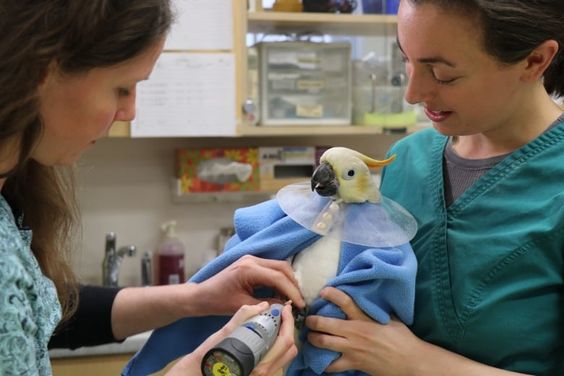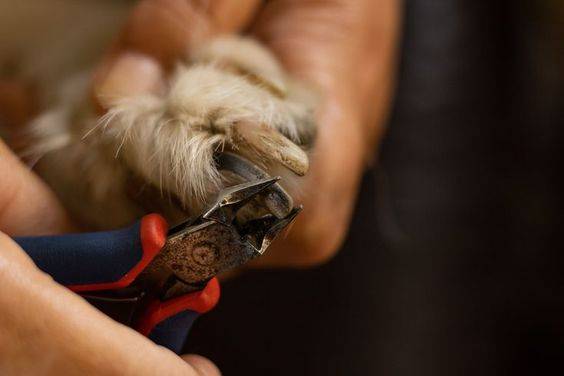Birds, with their vibrant plumage and captivating songs, have been cherished companions to humans for centuries. Whether you own a colorful parrot, a chatty canary, or a majestic raptor, the health and well-being of your avian companion are paramount. Enter the specialized realm of bird hospitals, institutions dedicated to the medical care and treatment of birds. In this comprehensive guide, we’ll explore the importance of bird hospitals, the services they offer, and how to ensure your feathered friend receives the best care possible.
Why Bird Hospitals are Essential
Specialized Care
Birds are unique creatures with distinct physiological and psychological needs. Unlike mammals, their anatomy and metabolic processes are highly specialized. For instance, birds have a unique respiratory system that includes air sacs, which makes them more susceptible to respiratory infections. Additionally, their bones are lighter and more fragile, requiring specialized orthopedic care in case of fractures.
Expertise in Avian Medicine
Bird hospitals are staffed with veterinarians who have received specialized training in avian medicine. These experts understand the intricacies of bird health, including their dietary requirements, common diseases, and behavioral patterns. This level of expertise is crucial for accurate diagnosis and effective treatment.
Advanced Diagnostic Tools
Bird hospitals are equipped with advanced diagnostic tools tailored for avian patients. These include digital radiography, endoscopy, and specialized blood tests. Such tools enable precise diagnosis and monitoring of health conditions, ensuring timely and effective treatment.
Services Offered by Bird Hospitals
Routine Health Checks
Just like other pets, birds require regular health check-ups to monitor their well-being. Routine exams can help detect early signs of illness, nutritional deficiencies, or behavioral issues. During these check-ups, veterinarians typically perform a physical examination, weight check, and may recommend blood tests to assess overall health.
Emergency Care
Birds can suffer from a range of emergencies, from trauma due to accidents to sudden illness. Bird hospitals provide 24/7 emergency care, ensuring that your feathered friend receives immediate attention when it’s needed most. Emergency services may include wound care, fracture stabilization, and treatment for acute infections.
Surgical Procedures
Whether it’s a minor procedure like feather cyst removal or a more complex surgery such as fracture repair, bird hospitals are equipped to handle a variety of surgical interventions. These procedures are performed by skilled avian surgeons using specialized equipment to ensure the safety and well-being of the bird.
Diagnostic Services
Bird hospitals offer a range of diagnostic services to accurately identify health issues. These include:
- Radiology: Digital X-rays to view bones and internal organs.
- Endoscopy: A minimally invasive procedure to view internal structures.
- Laboratory Testing: Blood tests, fecal exams, and other laboratory diagnostics to assess health and detect infections or metabolic disorders.
Nutritional Counseling
Proper nutrition is crucial for the health and longevity of birds. Bird hospitals provide nutritional counseling to ensure your avian friend receives a balanced diet tailored to their species-specific needs. This may include advice on commercial bird foods, supplements, and fresh foods.
Behavioral Consultations
Behavioral issues in birds, such as feather plucking or aggression, can be indicative of underlying health problems or environmental stressors. Bird hospitals offer behavioral consultations to address these issues, providing guidance on creating a stimulating and supportive environment for your bird.
Boarding and Grooming Services
Many bird hospitals offer boarding services, providing a safe and comfortable environment for your bird while you’re away. Additionally, grooming services such as nail trimming, beak shaping, and feather clipping are available to maintain your bird’s physical health.
Choosing the Right Bird Hospital
Accreditation and Certifications
When selecting a bird hospital, it’s important to choose one that is accredited by a reputable veterinary association, such as the American Animal Hospital Association (AAHA) or the Association of Avian Veterinarians (AAV). Accreditation ensures that the hospital adheres to high standards of care and stays up-to-date with the latest advancements in avian medicine.
Experienced Staff
Look for a hospital with experienced and certified avian veterinarians. The presence of board-certified avian specialists indicates a higher level of expertise in bird health and care. Additionally, friendly and knowledgeable support staff can make a significant difference in the overall experience for both you and your bird.
Comprehensive Services
Choose a hospital that offers a wide range of services, from routine check-ups to emergency care and specialized surgeries. This ensures that your bird will receive consistent and comprehensive care throughout their life.
Positive Reviews and Testimonials
Research online reviews and ask for recommendations from fellow bird owners or avian clubs. Positive testimonials and high ratings can provide insight into the quality of care and customer satisfaction at the hospital.
Common Health Issues in Birds and Their Treatment
Respiratory Infections
Birds are highly susceptible to respiratory infections due to their unique respiratory system. Common symptoms include wheezing, coughing, and nasal discharge. Treatment typically involves antibiotics and supportive care, such as ensuring a clean and stress-free environment.
Parasitic Infections
Birds can be affected by a variety of parasites, including mites, lice, and internal worms. Regular health checks and maintaining proper hygiene can help prevent parasitic infections. Treatment may include topical or oral medications to eliminate the parasites.
Nutritional Deficiencies
A balanced diet is crucial for a bird’s health. Nutritional deficiencies can lead to a range of health issues, including feather plucking, weakened immune system, and metabolic disorders. Bird hospitals provide nutritional counseling and may recommend dietary supplements to address these deficiencies.
Behavioral Issues
Behavioral problems in birds, such as feather plucking, aggression, and excessive vocalization, can be challenging for owners. These issues often stem from underlying health problems, environmental stressors, or lack of mental stimulation. Behavioral consultations at bird hospitals can help identify the root cause and provide strategies for managing these behaviors.
Trauma and Injuries
Birds can suffer from various types of trauma, including fractures, wounds, and burns. Immediate veterinary care is crucial for the successful treatment of these injuries. Bird hospitals are equipped to provide emergency care, including wound management, fracture stabilization, and pain relief.
The Importance of Preventive Care
Regular Health Check-Ups
Routine health check-ups are essential for detecting early signs of illness and ensuring your bird’s overall well-being. Regular visits to a bird hospital allow veterinarians to monitor your bird’s health, perform necessary diagnostic tests, and provide preventive care.
Vaccinations
Certain bird species require vaccinations to protect against infectious diseases. Your avian veterinarian can recommend appropriate vaccinations based on your bird’s species, age, and lifestyle.
Environmental Enrichment
Providing a stimulating environment is crucial for your bird’s mental and physical health. This includes a variety of toys, perches, and opportunities for social interaction. Bird hospitals can offer guidance on creating an enriching environment tailored to your bird’s needs.
Inference
Bird hospitals are indispensable for ensuring the health and well-being of our avian companions. With specialized care, advanced diagnostic tools, and a team of expert veterinarians, these institutions provide comprehensive care for birds of all species. Whether it’s routine health checks, emergency care, or behavioral consultations, bird hospitals play a vital role in the lives of pet birds and contribute significantly to avian conservation efforts.
As a bird owner, choosing the right bird hospital and staying proactive with preventive care are crucial steps in ensuring your feathered friend leads a healthy, happy life. By understanding the services offered by bird hospitals and the importance of specialized avian care, you can make informed decisions that benefit your bird’s health and well-being.







